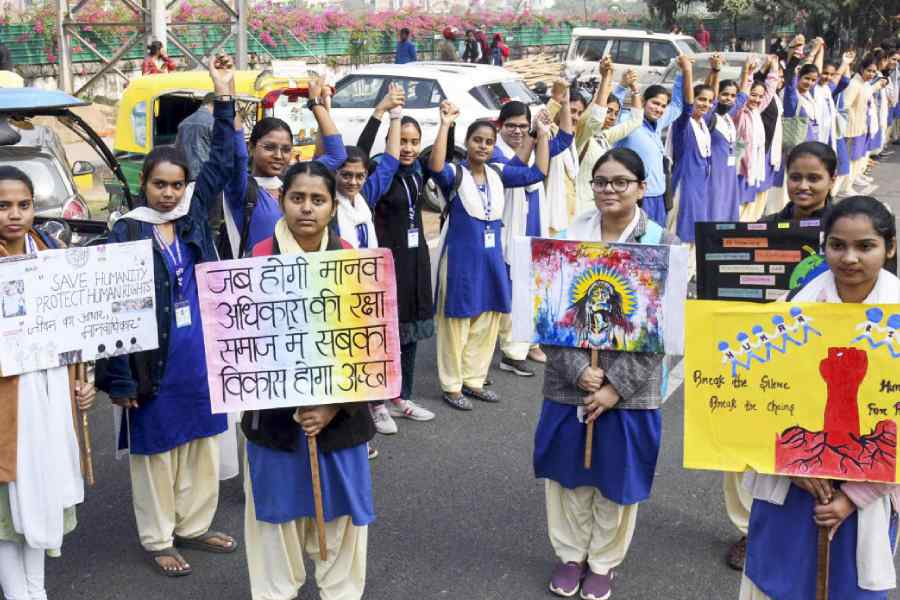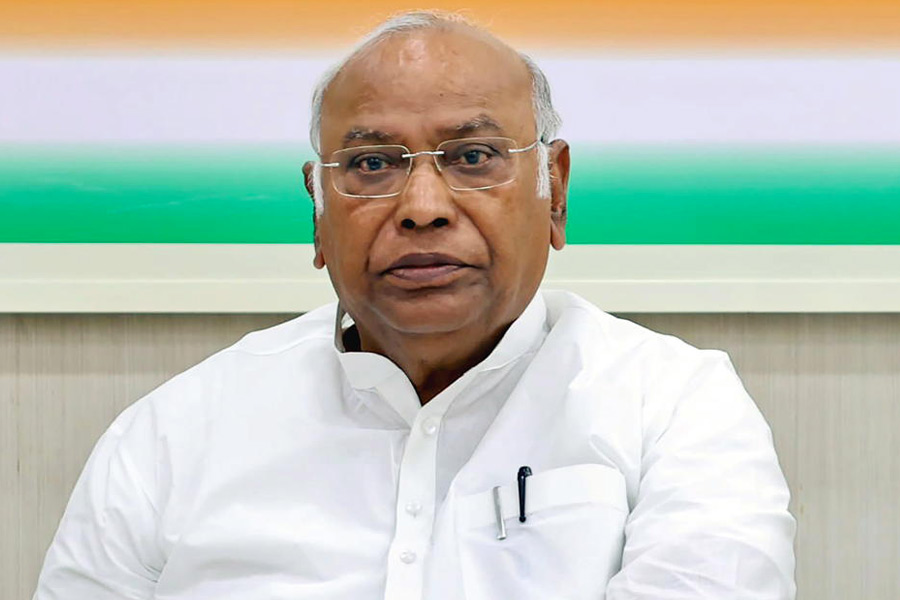Congress president Mallikarjun Kharge on Sunday stressed the importance of the rights of every citizen irrespective of caste and religion, insisting that poverty and rising crimes endangered people’s safety, even as the government and the BJP ignored Human Rights Day, being celebrated the world over.
December 10 this year marks the 75th anniversary of the Universal Declaration of Human Rights. The declaration was proclaimed by the United Nations General Assembly on December 10, 1948, recognising the fundamental and inviolable rights a human being enjoys regardless of race, colour, religion, sex, language or social status. The Human Rights Day theme for this year is “Freedom, Equality and Justice for All”.
Kharge issued a statement saying: “Mahatma Gandhi said – ‘The greatness of humanity is not in being human, but in being humane...’ On the 75th anniversary of the Universal Declaration of Human Rights (UDHR), it is imperative to reaffirm the basic tenets of the Constitution of India, which stridently puts forth the inalienable rights of every Indian citizen. Regardless of race, caste, creed, colour, religion, gender, language, and origin of birth, all citizens are humans. This year’s theme is Freedom, Equality and Justice for All.”
Pointing to the wretched poverty that poses the greatest threat to human dignity, Kharge said: “In this context, it is extremely disconcerting to see the latest report of the NCRB (National Crime Records Bureau).... It says — Since 2015, there has been an 87% increase in the suicides of India’s daily wage labourers. 468 people took their lives every day in 2022. 15,783 unemployed people committed suicide in 2022 alone.”
He continued: “158 Dalits and 28 Adivasis are attacked daily in our country. 28,545 crimes were committed against senior citizens and 2,878 children were trafficked in 2022. Dignity and equality in rights have been under a sustained assault in recent years. Only a strong voice against discrimination, disenfranchisement and division of our society can sustain the human rights that the makers of modern India so carefully put in place.”
The Congress president’s yearning for a “strong voice” for the protection of human rights met with a deafening silence from the ruling establishment. Prime Minister Narendra Modi chose to tweet about BJP leader Bandaru Dattatreya’s granddaughter and singer Kailesh Kher singing paeans to his greatness but had not a word on human rights. Global agencies have raised concerns about the diminishing democracy in India over the past few years; even the American administration this year criticised Modi’s track record on human rights.
The BJP’s official handle on X, party president J.P. Nadda and Union home minister Amit Shah too chose silence on Human Rights Day.
The Congress gave a call on its X handle to its workers to take a pledge to create awareness about human rights.
The chairperson of the National Human Rights Commission (NHRC), Justice Arun Mishra, issued a statement saying: “Its (human rights’) celebration every year tones up the narrative set for the protection of human rights and reminds to continue with the tireless efforts and hard work put in by people and organisations all over the world in protecting and promoting human rights. Human rights are inalienable, moral and pre-legal rights. Every law is required to be compliant with them.”
Recalling this year’s theme — Dignity, Freedom, and Justice for All — Justice Mishra said: “This underscores our collective obligation to create a society that is just, inclusive and remains humane for all everywhere.
“Thus, every human is entitled to live a life with dignity and enjoy rights in a free atmosphere. The Constitution of India unequivocally imbibes these values. These also reflect in the motto of the National Human Rights Commission, India – ‘Sarve Bhavantu Sukhinah’ i.e. ‘May all be happy’. Let us all work towards achieving this noble cause irrespective of caste, creed, sex, language and status.”
Vice-President Jagdeep Dhankhar, speaking at the NHRC function to celebrate the day, emphasised the importance of upholding the rule of law in the country. “Our Amrit Kaal became Gaurav Kaal primarily due to the blossoming of human rights and values,” he said.
Dhankhar also referred to the freebies given to the poor, saying: “Politics of so-called freebies, for which we see a mad race, distort expenditure priorities. Freebies, as per economic giants, undercut the basic framework of macroeconomic stability.”
Neither Justice Mishra nor Dhankhar made any mention of the rampant violations of human rights, rising atrocities against Dalits, tribals and minorities, and the global concern about the attacks on individual freedom in India. They didn’t explain whether the toxic political discourse, the findings of various courts about concocted cases, the witchhunts and the patronage given to troublemakers fitted into the Amrit Kaal, or Gaurav Kaal, narrative.











